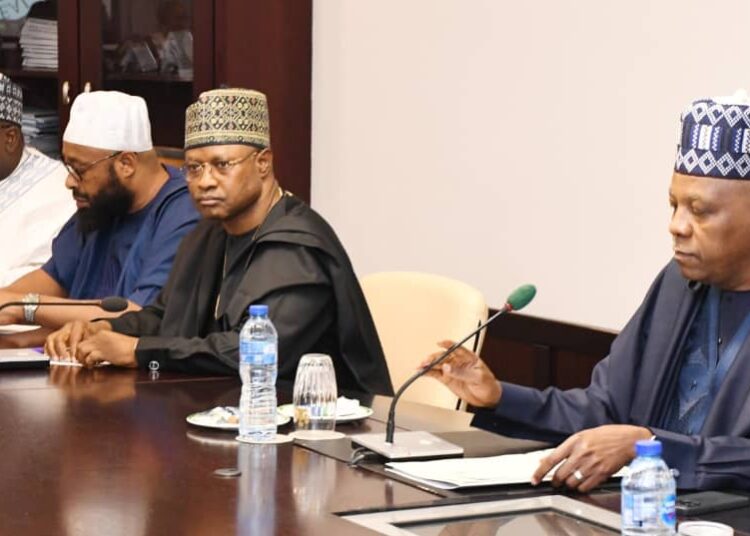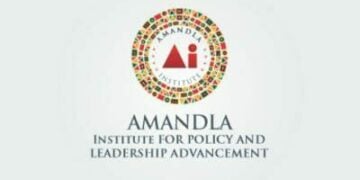The federal government is set to commence the implementation of the ‘Pulaku Initiative’, a large-scale resettlement programme aimed at addressing the root causes of farmer-herder conflicts and fostering national unity.
Accordingly, the Vice President, Senator Kashim Shettima, on Tuesday, inaugurated a steering committee to coordinate the implementation of the initiative in fulfillment of President Bola Ahmed Tinubu’s promise to improve the lives of all Nigerians.
The committee chaired by Minister of Housing and Urban Development, Arc. Ahmed Musa Dangiwa, also has representatives of governors of the affected States as members.
Other members of the committee include the Minister of Agriculture and Food Security, Sen. Abubakar Kyari; representatives of the Chairman of the Economic and Financial Crimes Commission (EFCC), Director General of the Bureau of Public Procurement (BPP), BUA Group, Dangote Group and the Director General of NEMA, among others.
Speaking during the inauguration of the implementation committee at the Presidential Villa, Abuja, the Vice President, in a statement by his spokesman, Stanley Nkwocha, said the project must be seen as an emergency to tackle a challenge that has threatened the fabric of Nigeria.
“It serves as a testament to the fulfilment of the promises made by His Excellency President Bola Ahmed Tinubu. The aim is to create an environment where the prosperity of our people is not just a distant dream but a tangible and achievable reality. This comprehensive approach reflects our dedication to fostering sustainable development and improving the lives of all citizens.
“This comprehensive approach reflects our dedication to fostering sustainable development and improving the lives of all citizens,” the VP stated, assuring that the initiative will address “a challenge that has persisted across various generations and demands our collective resolve, our optimum sense of justice, and our unconditional compassion.
“This is not merely a response; it is a call to action. We are here because each of our programmes or policies will falter unless we get to the root of the dysfunctions we have inherited,” he added.
The Pulaku initiative will initially focus on seven states that have been disproportionately affected by farmer-herder conflicts. They are Sokoto, Kebbi, Benue, Katsina, Zamfara, Niger, and Kaduna States.
The initiative aimed to revitalise the communities through the construction of residences, roads, schools, and essential facilities.
Explaining the idea of focusing on the seven states, the Vice President said, “The selection of these states is a deliberate and strategic approach. The aim is to generate ripple effects that will not only revitalize communities but also lay the groundwork for a more inclusive and cohesive Nigeria.”
VP Shettima further explained that the Pulaku resettlement is “a national commitment to confront a threat that has fuelled distrust and conflicts within communities and across the boundaries of our federation.
“This non-kinetic solution is not designed to compensate any particular group or region. Therefore, we must cast aside any notion of divisive regionalism and see the Pulaku initiative for what it truly is—a practical response to a shared challenge,” he added.
Urging all stakeholders to embrace the initiative with open hearts and minds, he said, “Let our legacy be measured not in the structures we build but in the lives we uplift, the unity we restore, and the collective strength of a nation rising above its challenges.”
Also present at the meeting were representatives from several Nigerian states and institutions, including Governors Hyacinth Alia of Benue State, Sen. Uba Sani of Kaduna State, Alhaji Mohammed Bago of Niger State, Alhaji Nasir Idris of Kebbi State, Alhaji Dikko Radah of Katsina State and Alhaji Dauda Lawal of Zamfara State.
Others were Minister of Agriculture and Food Security, Sen Abubakar Kyari; Minister of Housing and Urban Development, Arc Ahmed Musa Dangiwa; Chairman of EFCC, Mr Ola Olukoyede; Director-General of NEMA, Alhaji Ahmed Mustapha Habib; Director-General of Bureau of Public Procurement (BPP), Mr Mamman Ahmadu, and representatives from Dangote Group, BUA Group, and Shelter Afrique.





